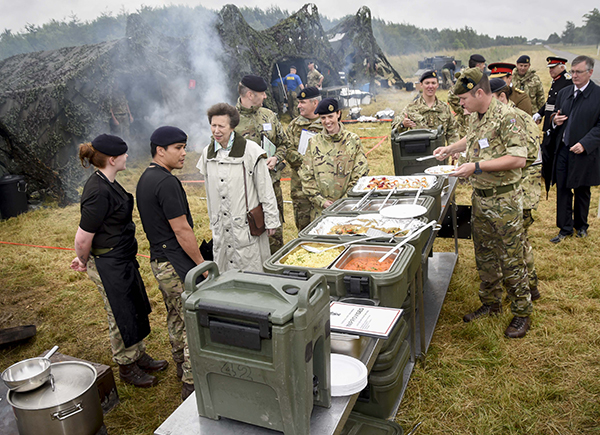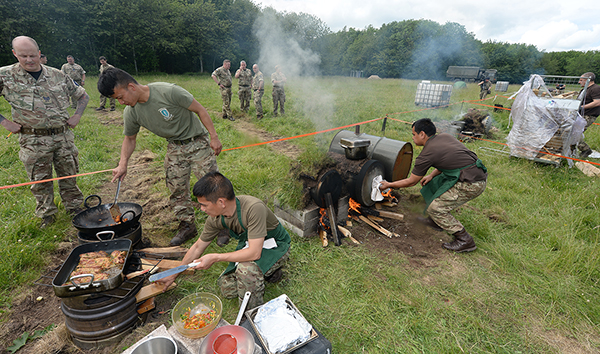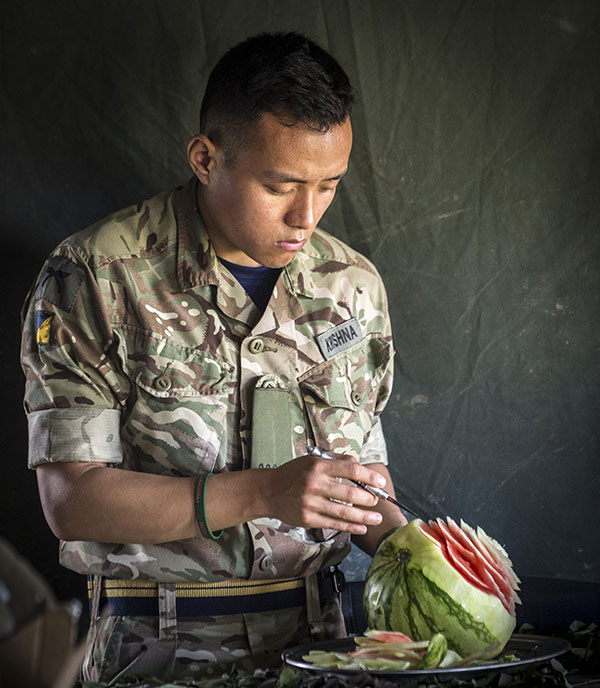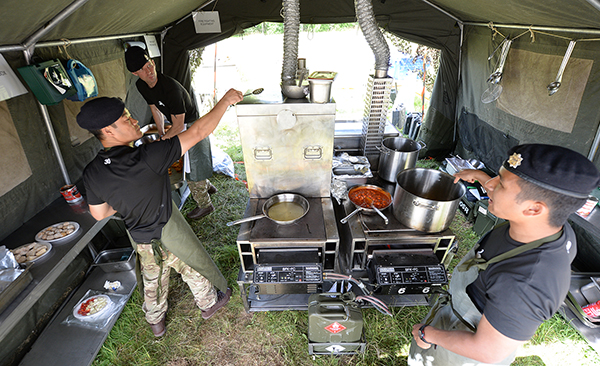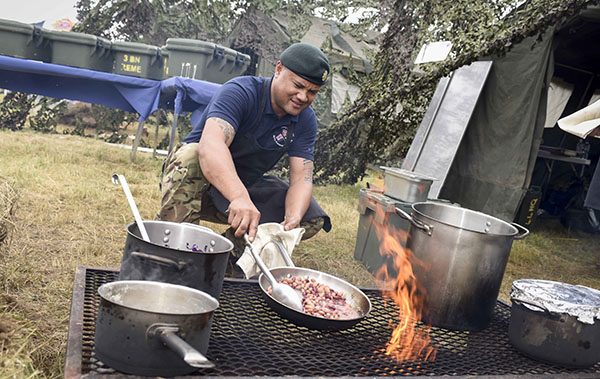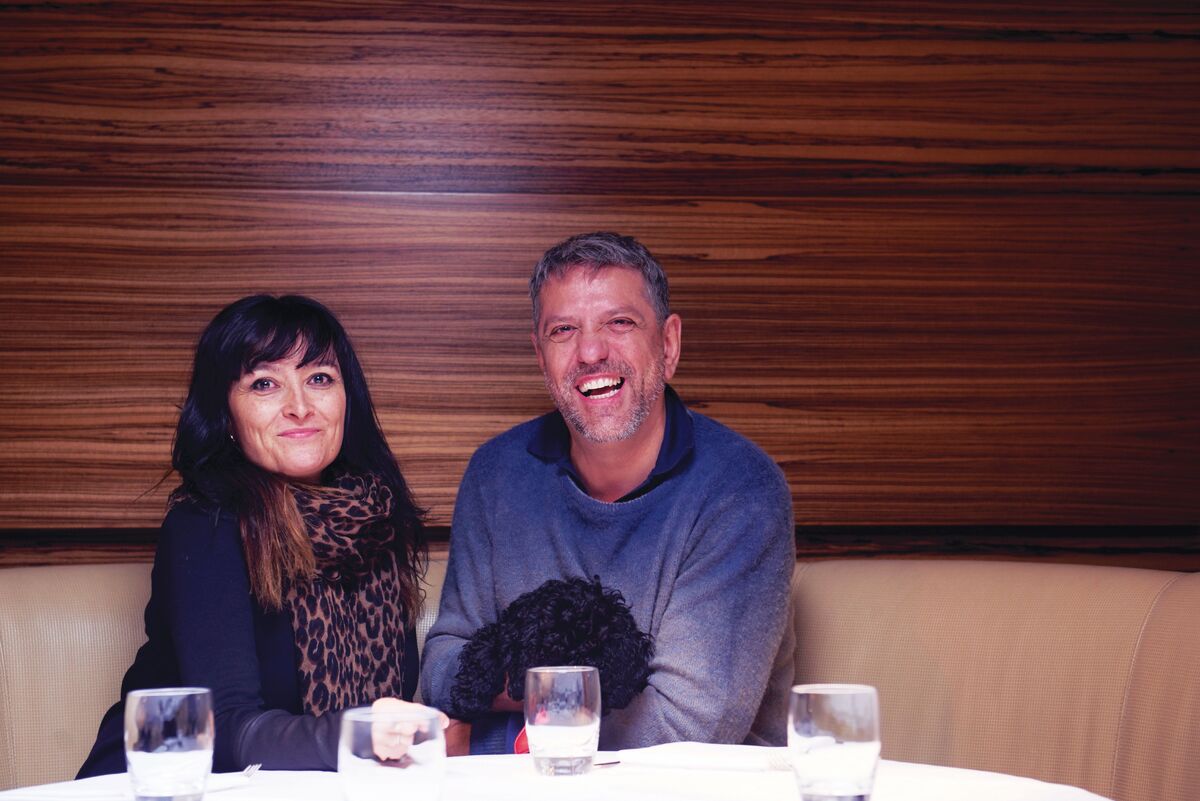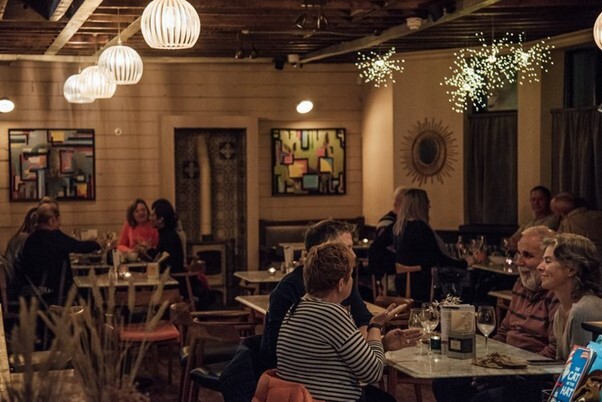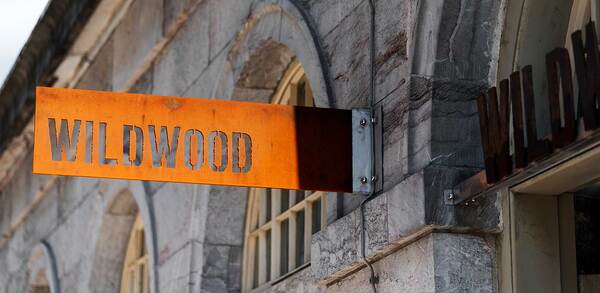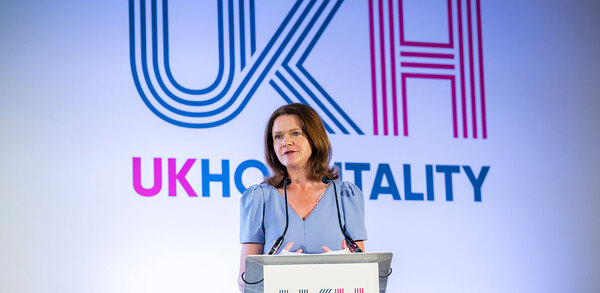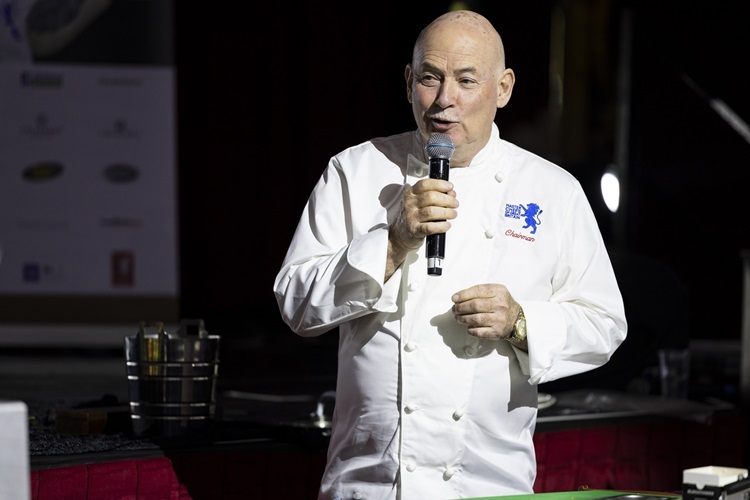Tour of duty: the Goring's David Morgan Hewitt on catering in the forces
David Morgan-Hewitt, managing director at the Goring hotel in London, has been honorary catering advisor to the British Army for the past eight years, assessing what the forces serve to their personnel out in the field and advising how it can be made better. He tells Janet Harmer why his role has been extended to cover the RAF and the Royal Navy
What does your role as honorary catering advisor (HCA) to the British Army entail? I was appointed HCA in 2010. The position dates back to 1938, when the War Office appointed Sir Isidore Salmon to the rank of major general (hon) to independently review the standards of catering in the British army.
The HCA made several visits a year to various army bases. He would look through the kitchens, evaluate the quality of the food and talk to those providing it, before reporting back to the chief of general staff [the head of the army]. The army had realised that it was falling behind the standards being offered in the commercial world and wanted to improve the quality of its offering.
Army chefs are first and foremost soldiers. They are taught to fight and then they also learn a trade as a chef. The British army is different to others in that it does not want its personnel on operations to live on ration packs alone. Trained chefs are able to combine tinned and dried food found in the ration packs with fresh ingredients wherever they are on operation in order to create much more interesting and diverse menus for our soldiers. This has always been recognised as providing a huge boost to the morale of those fighting. When not on operations, the chefs cook back in the home bases.
About 15 years ago, contract caterers were brought in across the army to feed soldiers, both at the home bases and also on operation. This has meant the number of army chefs has reduced from 3,500 when I started my role to the present 1,100. For much of the time, they work alongside the contractors in the home bases, providing food to the recipes and standards dictated by the caterers. When on operation, the army chefs can go much further forward than the contract caterers are allowed to go.
This change to the contracted world has been very interesting for me in my role as HCA. Many of the challenges I have seen have centred around the way in which the contracts are written and delivered by the caterers for the army.
How will your role now expand on becoming honorary catering advisor defence?
A few years ago I visited a couple of RAF bases to benchmark the quality of the offering being given by the army. The RAF had not contracted their dining until some years after the army and made the decision to purchase a more expensive solution, which suited their way of working. Personnel in an RAF base tend to stay for many years and it becomes their permanent home. The army moves around every few years, from base to base.
Following my RAF visit, the chief of air staff requested that I deliver a report to him as well as one to the army. It was not long before the navy asked me to do the same. So for the last few years in my role as HCA to the army, I was actually also reporting to the other two services and the chief of defence staff. In order to rationalise the position, on 1 August a new position was created of honorary catering advisor defence and I was appointed to this role when the Queen signed the commission.
How frequently do you visit defence establishments?
At the moment I visit two army bases, two RAF bases and two naval bases a year. On behalf of the service, I engage with those directly responsible for delivering the food output. I am given regular briefings as to the challenges faced at any given time and I am advised of areas that are giving concern.
A typical visit will begin with a meeting with the commanding officer of the base to understand his or her views on the quality of food being delivered and any observations or challenges they feel need to be brought to my attention. I will meet with the senior team of warrant officers and other non-commissioned officers who are responsible for delivery on the base, as well as speaking to the contract caterers. I will also visit the junior ranks' mess and talk to the personnel about their views on what they get fed and whether it is good value. I am usually accompanied by between five and 10 personnel on any of my visits. All of them are left at the door of the mess so that the soldiers, air personnel and naval staff will talk more openly. As you can imagine, what they say is not always complimentary!
What are the key challenges facing chefs and catering staff working in the forces in 2018?
Firstly, much of the food served by the contractors is bought in pre-prepared or frozen and the recipes are very prescriptive. Therefore in the day-to-day running of the kitchens, many of the skills the chefs have been taught are not being used. It is important that chefs are allowed to practise their skills in order to maintain them for when they are on operation. However, they are given opportunities at the bases to cook for special dinner nights in the officers' and sergeants' mess.
Also, the chefs can face morale issues when they feel that they are not being valued and given the opportunity to practise their skills. The navy faces a major challenge at the moment in that it does not have enough chefs and is trying to recruit more, especially as two new aircraft carriers come into service.
One of the greatest challenges in 2018 has been the introduction of new contracts across the MOD. There have been hundreds of smaller contracts, many of which have been rolled into seven major contracts. The country has been divided into seven areas and these contracts have been introduced over the last 12 months.
Project HESTIA, as the new contracting process was named, has its challenges. These are incredibly complicated agreements and inevitably the government has looked for the most cost-effective and cheapest options. The changeover has not been without difficulty and it is the chefs who have had to face this head on, alongside their civilian colleagues at the operational level of the contracting companies such as Sodexo, Aramark and ISS.
Are you able to make a difference to defence catering?
I have no real ability to change anything. All I can do is listen to those delivering catering and, through my report, highlight the challenges they face and the successes they have achieved, right up to the highest level of the chiefs of staff.
In this role I have been able to shine a spotlight onto service catering. This has led to a top-down interest in the issues being faced, which in turn has released resources to try and fix the various problems. The men and women I come across in the services have enormous pride in delivering the best quality food with the strict budget restrictions placed upon them. They are dedicated and hard working and determined to ensure they never let down their colleagues. There are also many at operational level who work tirelessly to try and deliver a good quality service. Unfortunately, their hands are very tightly tied by the contract stipulations and those back at their head offices. This has led to an extraordinary number of disappointments and challenges across the board.
What should the hospitality industry do to attract former catering staff from the forces?
The London district of the army has a wonderful pilot scheme. Chefs from the army are given two-week placements, either at a city livery company, Roast restaurant or at the Goring. This is a successful scheme which allows army chefs to experience a commercial kitchen and see the opportunities available once they leave the forces. From our point of view, it also introduces new people from a different background into the mix, which other members of staff find interesting. If this scheme could be rolled out across the country for all three services, it would be a great way to recruit former personnel from the services.
You have always played an active role in the hospitality industry. Why is this important?
The hotel industry is amazing in so many ways and I would not want to work anywhere else. One of the things which stands it apart from other industries is that it is a very large, caring community. Although we work competitively against each other in the hotel industry, we all have a sense of belonging and many wish to ensure that we move forward and become even better than we are now.
I have been fortunate to sit on the executive committee of the Master Innholders for the last few years. This is an organisation that sets out to lead the industry through its high standards of professionalism, and also cares and nurtures its workforce. Its scholarship programmes invest heavily in the leaders of the future and its members are known to be some of the most forward-thinking and engaging members of our industry.
I have also worked with the BHA [now UKHospitality] to help raise the profile of our industry, and I have worked with Springboard, which encourages young people into hospitality.
I care passionately about our industry and have always tried to help in any way I can. I have enjoyed visiting universities and delivering talks for them. I also see my work as HCA as another way in which we can help those who belong to the hospitality industry, albeit in a specific way within the armed services.
How has the Goring performed this year?
I am delighted to say that 2017 was best performing year the Goring has ever had and 2018 looks to be better. Of course there are challenges, such as increased competition as more and more luxury hotel bedrooms open across the capital at a rate that far outstrips the growth in the demand. However, like all innovative establishments, we will do our best to meet the challenge and continue our growth, not only in terms of financial results but also with a continued improvement in the level of our hospitality and the opportunities we offer our personnel.
David Morgan-HewittÂ
David Morgan-Hewitt has spent nearly 28 years â" most of his hospitality career â" at the Goring, during which time he has established himself as a larger-than-life personality synonymous with the hotel.
After reading history at Durham University, he started a career in consumer and then financial PR, but loathed it. Inspired by holiday work he had undertaken as a student at Sprowston Manor hotel in Norwich, he decided to pursue his love of hospitality and went to work for Keith Read, the owner of Reads, a neighbourhood restaurant in Londonâs Old Brompton Road.
After a brief spell at a new hotel project in Faversham, Kent, which faltered, Morgan-Hewitt joined the family-owned Goring hotel in 1990 as restaurant manager. He worked his way up to general manger and then eventually managing director in 2005.
Morgan-Hewitt was one of the inaugural hoteliers to be awarded a Master Innholdersâ scholarship to study at Cornell University in New York State in 1997. He has been the recipient of numerous awards, including General Manager of the Year Worldwide by US-based publication Luxury Travel Advisor in 2015 and Outstanding Contribution Award at the Hotel Cateys in 2017.
Today his vision for the five-red-AA-star, 69-bedroom hotel is shared with the owner Jeremy Goring: âquintessentially English, a little bit eccentric, surprising, theatricalâ.



